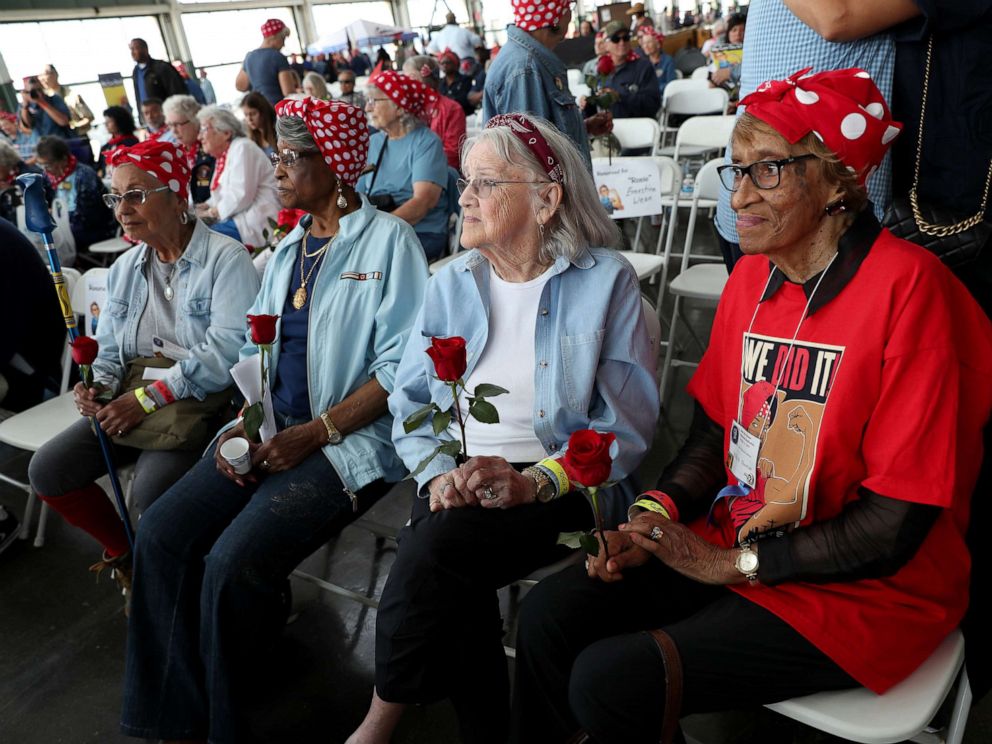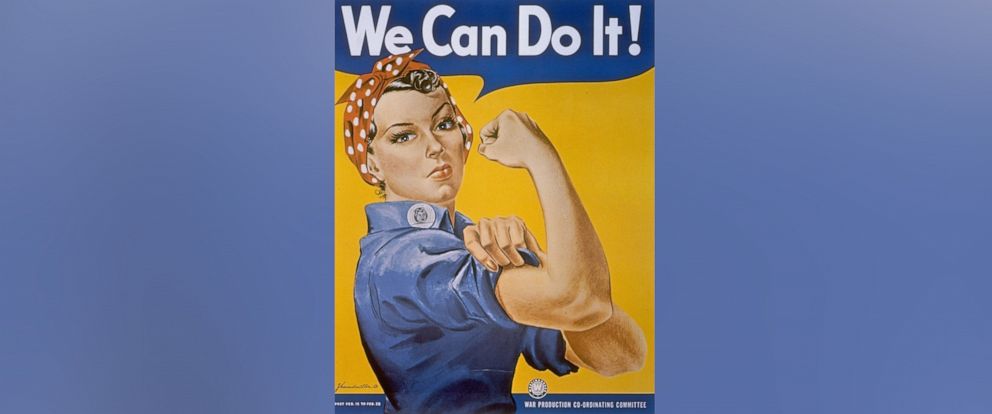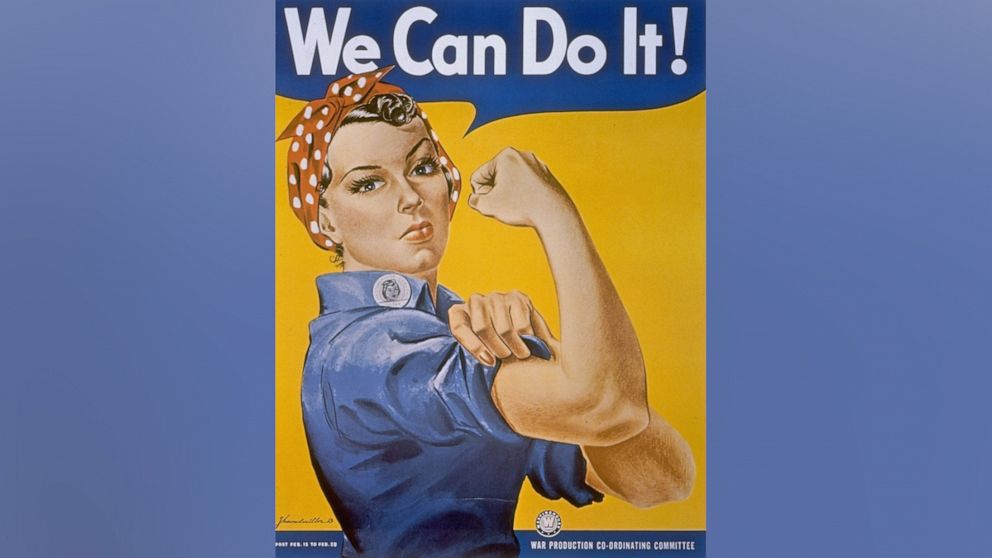Bill awarding 'Rosie the Riveters' with Congressional Gold Medal passes Congress
"Rosie the Riveter" is finally getting her due.
A bill honoring American women who joined the workforce as riveters, buckers, welders and electricians to support the war effort during World War II passed Congress on Thursday, on the heels of Veterans Day.
The Rosie the Riveter Congressional Gold Medal Act, which now goes to President Donald Trump's desk, would collectively award a Congressional Gold Medal to some 16 million women who worked to build vehicles, weaponry and ammunition during the war.

They're women like Mae Krier. The Levittown, Pennsylvania, resident built B-17 and B-29 bombers in Seattle from 1943 to 1945. Today, her "tireless advocacy" has helped get the legislation through the chambers, according to Republican Pennsylvania Rep. Brian Fitzpatrick, who co-sponsored the bill in the House, where it passed last year.
"These 'Rosie the Riveters' embodied the 'We can do it' spirit forever connected with the famous poster. I am especially proud to represent Levittown's Mae Krier," Fitzpatrick said in a statement.
Fitzpatrick co-sponsored the bipartisan legislation with California Rep. Jackie Speier, who noted that the "iconic image of Rosie the Riveter continues to inspire generations of young women across America to blaze new trails."
"But for decades, our Rosies -- many of whom continue to dedicate their lives to service -- have been denied the recognition awarded to other World War II heroes," she said in a statement. The legislation will "finally honor Rosie the Riveters for their courage, sacrifice, and immense contributions to our nation."
On Thursday, the bill unanimously passed in the Senate, where it was co-sponsored by Sens. Susan Collins, R-Maine, and Bob Casey, D-Penn. Both noted the enduring impact of the "Rosies."
"During World War II, mothers, wives, and daughters answered our nation's call to action by working tirelessly in factories, farms, shipyards, airplane factories, and other institutions in support of our Armed Forces," Collins said in a statement. "Their hard work, dedication, and 'We Can Do It' spirit has inspired many future generations of women."
"The 'Rosies' are among our Nation's greatest living heroines, and they deserve this long-overdue recognition for their tremendous service to our country," Casey said in a statement.

The "Rosies" continue to do their part to help the country. Krier has been making masks during the coronavirus pandemic, fashioned in the same iconic red polka dot fabric worn in the famed "Rosie the Riveter" poster.
"When I make these bandanas, I make them with good feeling," Krier told ABC News in July. "If just one of these little face masks can save one life, I've done my job."
Krier said at the time that they were "working really hard" to get the Congressional Gold Medal bill through the Senate. On Thursday, she could finally celebrate her victory.
"Isn't that great," she told the Bucks County Courier Times when asked about the news.
The Rosie the Riveter Trust, which supports the Rosie the Riveter/WWII Home Front National Historical Park in Richmond, California, marked the passage on social media Thursday, writing, "THEY DID IT!!!!"
"Our Rosies should see that our government recognizes the critical role they played in our American freedom," the organization wrote.
Between 1940 and 1945, the percentage of women in the U.S. workforce increased from 27% to 37%, according to History.com.
Krier has also advocated to get March 21 recognized annually as National Rosie the Riveter Day.




